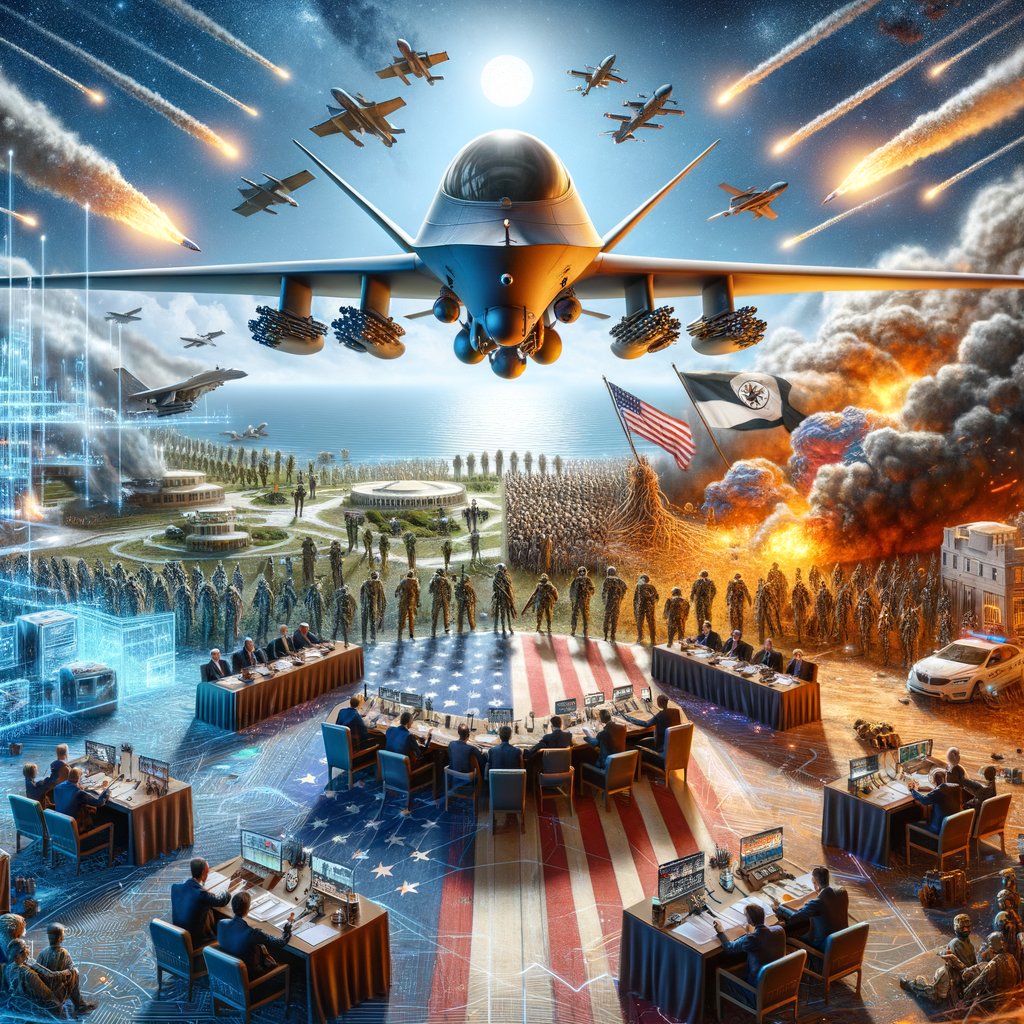Image created by AI
Tensions Escalate as Russia Refuses Territory Swap with Ukraine Amid Ongoing Conflict
In a significant development amid the ongoing conflict between Russia and Ukraine, the Kremlin has explicitly rejected the idea of trading territory. Dmitry Peskov, Kremlin spokesperson, declared that any suggestion of exchanging Russian territory for areas in Ukraine currently occupied by Russian forces is "impossible." This response followed a statement from Ukrainian President Volodymyr Zelenskyy proposing a territory swap to potentially ease the conflict that has dragged on since 2014 but escalated dramatically in 2022.
The announcement from Moscow came shortly after a severe escalation in hostilities, with a concentrated attack on Kyiv involving drones and missiles that resulted in civilian casualties and considerable damage to infrastructure. The strike led to at least one death and injuries to others, including a child, signaling a notable intensification in the use of firepower in populated areas.
Despite the ongoing peace negotiations and international efforts to mediate, the situation on the ground continues to deteriorate. Zelenskyy's proposal was aimed at retrieving approximately 112,000 square kilometers of Ukrainian territory currently under Russian control in exchange for about 450 square kilometers of the Kursk region, which Ukrainian forces have held since August of the previous year.
However, the Kremlin's stance is clear, with Peskov emphasizing that Russian troops are determined to reclaim the occupied portions of Kursk, stating that Ukrainian forces would either be "destroyed" or expelled. The Russian Ministry of Defence has also confirmed carrying out a "group missile strike" targeting Ukrainian military-industrial sites, asserting that all intended objectives were successfully hit.
Furthermore, Zelenskyy's comments on social media post-attacks underscore the dire tone of the conflict, accusing Russian President Vladimir Putin of persisting in aggressive actions rather than preparing for peace. With upcoming diplomatic engagements, including Zelenskyy's meeting with US Vice President JD Vance and the visit of President Donald Trump’s special envoy Keith Kellogg, there remain some avenues for diplomatic discussions.
However, statements from global leaders, including former US President Donald Trump hinting at a possible Russian future for Ukraine, add layers of complexity to an already volatile negotiation environment. As the international community watches closely, the human cost of this conflict continues to rise, with no clear resolution in sight.










